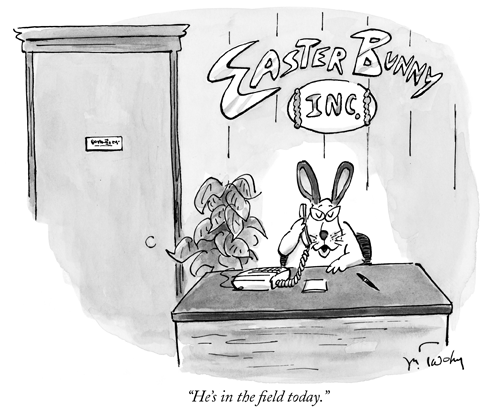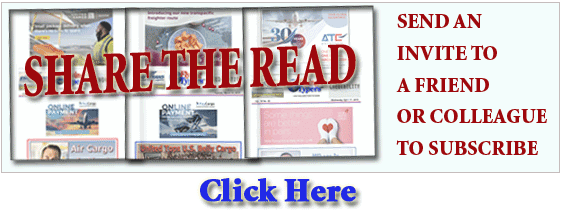|
FIATA, old and new
This is the period of the year when FIATA Members
meet face to face in Zurich at the Headquarters’ session. In 2021
the format had to change due to the pandemic, so the novel FIATA WEEK
meeting ran for all registered Members swiftly and flawlessly: on-line
only, a useful time to see old friends and listen to old and new topics
that are central for FIATA and the entire forwarding sector.
Those who wish to read more on the event can
consult the Press
Release published by the Secretariat.
The Founder in 1807 Was Also Called
Francesco
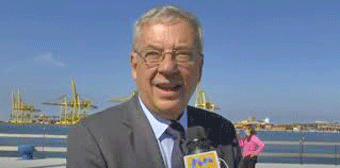 My
dear friend and fellow countryman Francesco Parisi, who was the President
of FIATA between 2013 and 2015, is a personality whom FT readers have
already met a couple of years ago, when I wrote about him and his 200+
years old company
in Trieste. This year, with no chance to meet face to face, I had to make
do with an online conversation, actually very informative for me, thanks
to Francesco, who allowed me to summarize our talk in an article for our
common friend (and FIATA Fellow), Geoffrey Arend. As you may already know
the company Francesco
Parisi Spa is a historical freight forwarding and logistics business,
but its services include the exploitation of a handling, logistics and
railway terminal in the port of Trieste for a number of years. My
dear friend and fellow countryman Francesco Parisi, who was the President
of FIATA between 2013 and 2015, is a personality whom FT readers have
already met a couple of years ago, when I wrote about him and his 200+
years old company
in Trieste. This year, with no chance to meet face to face, I had to make
do with an online conversation, actually very informative for me, thanks
to Francesco, who allowed me to summarize our talk in an article for our
common friend (and FIATA Fellow), Geoffrey Arend. As you may already know
the company Francesco
Parisi Spa is a historical freight forwarding and logistics business,
but its services include the exploitation of a handling, logistics and
railway terminal in the port of Trieste for a number of years.
Waiting to Strike a Deal
The main point of interest for me was Francesco’s
deal with the German company HHLA,
which had come to some surprise for some, considering he had been negotiating
with a Chinese interested party for a considerable duration, to the point
of even raising some attention at political level on both sides of the
Atlantic.
Mediterranean Port at 45N64, 13E79,
the Heart of Europe
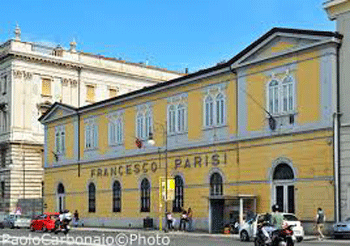 Francesco’s view on the strategic
potential of the port of Trieste cannot be clearer: he sees the Adriatic
like an enormous navigable canal to the heart of Europe, cutting transit
times to the east by almost a week. A look at the map leaves no questions
open on this point.
Francesco’s view on the strategic
potential of the port of Trieste cannot be clearer: he sees the Adriatic
like an enormous navigable canal to the heart of Europe, cutting transit
times to the east by almost a week. A look at the map leaves no questions
open on this point.
Limes has published a report
on Italy and the sea, which highlights the role of the Adriatic, and Francesco
pointed it out to me (translatable from Italian).
Francesco also recognizes that two world
wars in a row had created a complicated situation, which thwarted the
competitive advantage of Trieste, once the main port of the Austro-Hungarian
Empire, into a noticeable decline.
Francesco’s company is partaking in
the PPP project to construct and operate a new marine terminal in the
area. So our talk was focused on the circumstances that led Francesco
to release part of his majority into German hands (HHLA now holding 50.1%
of the shares) after his long negotiations with his Chinese counterparts.
Show Me the First Reel, Please
Since 2016 there had been very serious negotiations
with the Chinese interested party (said to be China Merchants in Trieste’s
local newspaper “il Piccolo”, not confirmed directly by the
parties concerned), but their conclusion had not arrived yet in 2020.
As is in the public domain, the negotiations with the Chinese did not
come to fruition, perhaps also due to the additional uncertainty generated
by the pandemic, especially in Europe. “We both knew that time was
passing, so we informed our Chinese counterparts that they could not be
endlessly given exclusive rights in the negotiation, because there were
other interested parties,” said Francesco Parisi, who also explained
that “only then did the negotiations begin with the Germans, and
they were rather swift. HHLA did not take advantage of the COVID19 situation
in their approach, but they took a more strategic long-term view, which
testified in their favour.”
The Germans Came with a Fast Car
On September 28, 2020 the investment contract
was signed by HHLA, and became effective as soon as the conditions for
the so called "golden power clause", which the government could
activate, were excluded. The Presidency of the Council of Ministers held
the power to veto this kind of transaction on infrastructure, if considered
strategic by the State, but in just 20 days the company received the government’s
consent for the change of control. Minister Patuanelli, who is from Trieste,
fully understanding the importance of this step, attended the meetings.
The first ship arrived into the newly equipped
terminal on March 20, 2021. At 04.00 am on March 21st she left after being
unloaded and reloaded, with about one month’s delay on the original
plans, and understandably so given the pandemic situation.
Die Geographie ist Wichtig, Oder?
In Francesco’s view it is strategic
for the German group to focus on Trieste, also with a view to finalizing
a logistics quadrilateral comprising Hamburg in the North Sea, Tallinn
in the Baltic, and Odessa in the Black Sea with the arrival of Trieste
in the Adriatic, completing the Mediterranean part. HHLA also owns a railway
company in Prague, right in the middle of the four port stations. In this
light the project shows its full strategic importance. We just learnt
how many billions of dollars, euros, dinars etc. have been wasted in blocking
the Suez Canal for about a week: this clarifies with no room left to doubt
how strategic the HHLA investment is.
The Smoothness of Silk Makes Ripples on the Waters
That said, the Chinese had been around since
2016 and it was a very serious negotiation. Francesco maintains that the
negotiation was conducted on a purely commercial basis. The Chinese team
was probably uncertain that the construction of this infrastructure could
be completed in time, and this was probably due to previous experiences
of similar nature in Italy. However, Francesco also believes that the
negotiations continued until the MoU on the Silk Road with the Italian
government was signed. This triggered some debate amid Italy’s traditional
allies. Then onwards, things became slightly more difficult. In the end,
despite having opened important perspectives at political level, the MoU
introduced greater difficulties in private sector negotiations.
Zeno d'Agostino of the Trieste Port Authority
made an interesting point that sounded like: “we are fully involved
in the Silk Road, which is not identical to the Belt and Road: the latter
is the project of a sovereign state making investments in a different
perspective.”
Having said that, “I'm happy we’ve
concluded with the Germans. But there are no intentions to close our doors
to anyone,” confirmed Francesco.
Free Trade Brings Prosperity for All, says History
Historically, continued Francesco: “Italy
has always looked north rather than south towards the sea, which has no
rational explanation in my view. In Trieste there have been noteworthy
Turkish investments for at least one decade and German ones starting in
2020. Rialto, the area where Venice is recognized having been founded
on 25th of March 421, hosts the Fontego dei Turchi (Turks’ storehouse)
and the Fontego dei Todeschi (Germans’ storehouse), situated next
to each other. Within the Most Serene Republic these ancient concessions
benefited from exemptions which allowed them to carry out their businesses
in peace and prosperity, for themselves and for the Republic. Venice never
lost its sovereignty for this reason, but it always traded with everybody.
“If necessary, strongly defending its commercial interests.”
I interjected Francesco’s point and suggested that Venice started
to lose its sovereignty for a number of reasons, in particular when imperialism
began to dominate Europe, making free trade decline into colonialism.
History tells us that on May 12th 1797, the Most Serene Republic of Venice
ceased to exist after 1,376 years, when the Doge, Ludovico Manin, requested
the Greater Council of Venice to examine the dire situation. The abdication
in favour of the Provisional Municipality of Venice, required to take
power by the French invaders led by Napoleon Bonaparte, followed in due
course.
Accidentally, Francesco and I had celebrated
Venice’s foundation in our conversation, precisely 1,600 years later.
History is teaching the lesson that free trade brings prosperity and fine
arts, thus providing food for our bodies and our souls; in these Venice
excelled for well over a thousand years.
“After the Germans, the expressions
of interest in the port of Trieste have multiplied and this is certainly
a good sign for the future,” concluded Francesco Parisi, the busy
and cunning entrepreneur whose long career taught him to deal with every
culture on fair terms. Our talk saw its positive end with the hope for
a renewed period of prosperity for Trieste and the rest of Europe, based
on the firm intention to cooperate on fair and reciprocal terms with all
relevant parties.
If reading this article is not sufficient
and you wish to hear Francesco Parisi directly speaking on these topics,
your resource of choice is POLARIS LIVE with Sarwar Kashmeri. To access,
click here.
Marco L. Sorgetti
|




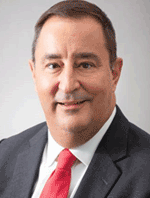 Air
Belgium is operating four A330-200Fs for the French CMA CGM Group that just
launched its cargo airline division and began thrice weekly all-cargo operations
Liege-Atlanta where AGI is providing the ramp and warehouse services.
Air
Belgium is operating four A330-200Fs for the French CMA CGM Group that just
launched its cargo airline division and began thrice weekly all-cargo operations
Liege-Atlanta where AGI is providing the ramp and warehouse services.